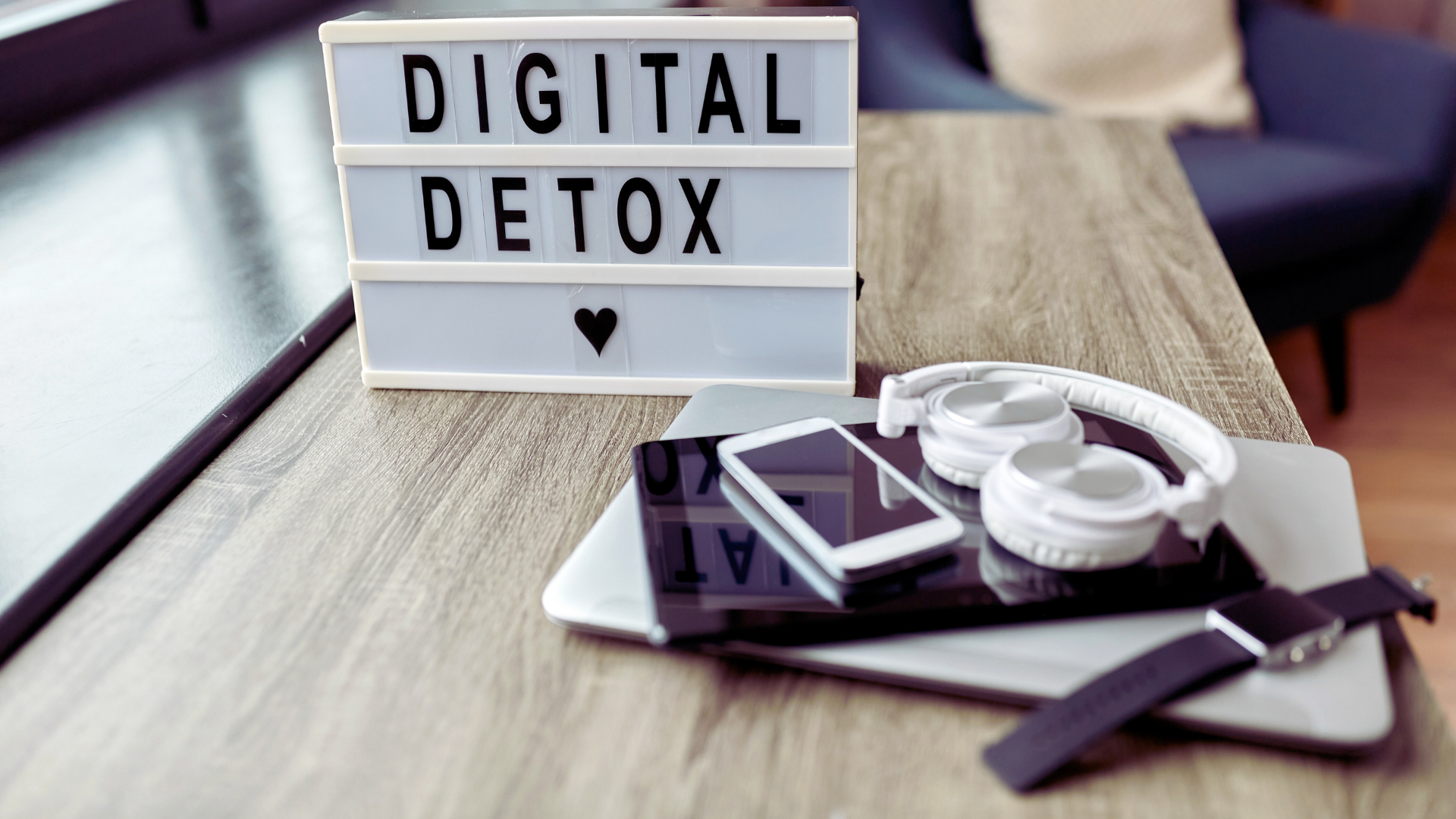In today’s digital world, constant connectivity can undermine focus and mental well-being. He or she may find that excessive screen time leaves little room for reflection or genuine engagement with their surroundings. Implementing a digital detox can significantly enhance one’s ability to reclaim time and improve concentration.
Simple strategies such as designating tech-free periods, reducing social media engagement, and engaging in offline hobbies can create a healthier balance. Taking these steps not only minimises distractions but also fosters a greater sense of presence and productivity in daily activities. By consciously stepping back from screens, individuals can cultivate a more fulfilling and focused lifestyle.
The challenge of managing a digitally saturated life is real, but the rewards of a well-executed digital detox are substantial. Those who prioritise their mental well-being often discover improved clarity and effectiveness in both personal and professional pursuits. Embracing a few key detox techniques can lead to profound changes in one’s overall experience of time and focus.
Understanding the Impact of Digital Overload
Digital overload affects individuals in various ways, notably through excessive screen time, mental fatigue, and physical health issues. Understanding these impacts can help in recognising the need for a digital detox to reclaim focus and time.
Excessive Screen Time and Its Consequences
Excessive screen time significantly contributes to a range of consequences affecting daily life. It is associated with decreased productivity and increased procrastination.
Extended use of devices leads to a lack of physical activity, contributing to obesity and other health issues. Additionally, the constant engagement with screens can lead to diminished social interactions and a sense of loneliness.
Mental health can also be adversely affected, increasing feelings of anxiety and stress. These behaviours often create a cycle that can be difficult to break without intentional strategies to reduce screen time.
Mental Fatigue and Attention Span
Digital overload is a leading cause of mental fatigue. The brain is constantly processing vast amounts of information from multiple sources, making it challenging to maintain focus.
Attention spans are shortening as individuals become accustomed to rapid information consumption. This can result in difficulty concentrating on single tasks or reading lengthy texts.
Prolonged exposure to screens can also lead to symptoms of burnout, characterised by feelings of exhaustion and disengagement. This can hinder both personal and professional development, as mental capacity becomes overwhelmed.
Physical Impact of Technology Use
The physical impact of technology use is often underestimated. Continuous screen exposure can result in eye strain, commonly referred to as digital eye strain or computer vision syndrome.
Symptoms include headaches, blurred vision, and discomfort, particularly from blue light emitted by screens. Maintaining poor posture while using devices can contribute to musculoskeletal issues, causing back and neck pain.
Physical health issues, such as poor sleep quality, are linked to excessive device use before bedtime. This imbalance can exacerbate feelings of anxiety and stress, creating a detrimental cycle that impacts overall well-being.
Effective Digital Detox Strategies
Implementing effective strategies can significantly improve digital well-being and focus. By setting clear boundaries and managing social media usage, individuals can reclaim their time. Reducing distractions through notifications management is equally crucial.
Setting Boundaries with Technology
Establishing boundaries helps create a healthier relationship with devices. Individuals can set specific times during the day when technology is off-limits, such as during meals or before bed. This practice minimises screen time and promotes better mental health.
Using apps that track and limit usage can be beneficial. They help to reinforce these boundaries by providing insights into time spent on devices. This way, it becomes easier to identify patterns and make necessary adjustments.
Encouraging face-to-face interactions over digital communication can also enhance personal connections. This reduces reliance on devices and fosters a more balanced lifestyle.
Managing Social Media Use
Social media can often contribute to feelings of FOMO (fear of missing out). To combat this, individuals can schedule specific times for checking social media rather than using it constantly throughout the day.
Keeping track of emotional responses to social media can lead to healthier habits. Noting when frustrations or comparisons arise can inform one’s use. It may be helpful to unfollow or mute accounts that provoke negative feelings.
Consider implementing a “social media detox” period. Setting aside a week or even a few days without engagement can provide significant mental clarity and perspective.
Turning Off Notifications and Minimising Distractions
Turning off non-essential notifications can drastically reduce distractions. This helps individuals concentrate on tasks without incessant interruptions. Prioritising notifications for important communications can streamline essential interactions while ignoring trivial ones.
Creating a distraction-free environment is vital for maintaining focus. Designating specific areas or times for device-free activities fosters better productivity.
Encouraging a single-task approach, rather than multitasking, can enhance efficiency. Research shows that multitasking often hampers overall productivity. By concentrating on one task at a time, individuals can achieve better results in shorter periods.
Implementing these strategies can lead to a more balanced and fulfilled digital life.
Enhancing Focus and Productivity
Finding ways to enhance focus and productivity can significantly improve overall well-being. Strategies like creating tech-free zones, embracing mindful activities, and utilising the 20-20-20 rule can lead to better concentration and a more fulfilling experience in both personal and professional life.
Establishing Tech-Free Zones
Creating tech-free zones can foster an environment that encourages focus and creativity. Designate specific areas in the home or workplace where digital devices are not allowed. This helps to minimise distractions and promotes a space for uninterrupted thinking or deep work.
Consider areas such as the dining room during meals or the bedroom when winding down. Encouraging family or colleagues to join in strengthens the commitment to this practice.
Benefits include improved communication and stronger relationships, as individuals are more present. A tech-free zone ultimately supports a balanced approach to technology and aids productivity.
Adopting Mindful Activities
Incorporating mindful activities into daily routines can enhance concentration and productivity. Practices such as meditation, yoga, or simply taking a walk help to centre the mind and reduce distractions.
Mindfulness encourages individuals to focus on the present, reducing stress and alleviating anxiety. Short sessions of focused breathing or grounding exercises can reset attention levels effectively.
Integrating these activities regularly allows for improved mental clarity. This, in turn, can facilitate better learning and retention of information, ultimately boosting overall productivity.
Utilising the 20-20-20 Rule
The 20-20-20 rule is a simple yet effective strategy for maintaining eye health and preventing fatigue from screen time. Every 20 minutes, one should look at an object 20 feet away for 20 seconds.
Implementing this practice helps reduce eye strain and can also refresh mental focus. By allowing the eyes a brief respite, productivity can significantly increase.
In addition to eye care, this break can serve as a cue to take a short mental pause. This routine can create a more balanced approach to tasks, enhancing both focus and creativity throughout the day.
Reclaiming Balance in Real Life
Finding balance in daily life is essential for enhancing mental well-being and nurturing real-life connections. Cultivating meaningful interactions, engaging in outdoor activities, and reflecting through journaling can significantly contribute to an individual’s focus and overall quality of life.
Fostering Face-to-Face Interactions
Face-to-face interactions play a vital role in strengthening relationships and enhancing mental health. Engaging in conversations without digital interruption fosters deeper connections and improved communication skills. It allows individuals to pick up on non-verbal cues, which are often lost in digital exchanges.
Scheduling regular meet-ups with friends or family can provide a sense of belonging. Activities such as shared meals, walks in the park, or attending social events encourage mental stimulation and joy.
Moreover, prioritising in-person interactions can reduce feelings of isolation, leading to improved sleep quality and emotional resilience. Making an effort to connect with others can greatly enrich one’s personal and social life.
Enjoying Outdoor Activities and Physical Activity
Participating in outdoor activities significantly benefits both physical and mental health. Nature offers a calming effect that can alleviate stress and enhance mood. Activities such as hiking, cycling, or simply walking in green spaces encourage a break from screens, allowing for a refreshed perspective.
Physical activities release endorphins, which positively influence mental well-being. Regular engagement in such activities can lead to better sleep, which is crucial for cognitive functions and emotional stability.
In addition, outdoor activities often present opportunities for socialising, further cultivating real-life connections. Making time for nature and exercise can serve as a valuable strategy for reclaiming balance in life.
Journaling and Reflection
Journaling provides a structured way for individuals to process their thoughts and feelings. This practice can lead to greater self-awareness and emotional clarity. By dedicating time to reflect on experiences, one can identify stressors and develop strategies for managing them effectively.
Writing can also facilitate setting personal goals, tracking progress, and celebrating achievements. This process encourages a proactive approach to mental well-being, leading to improved focus and productivity.
Creating a journaling routine, whether daily or weekly, allows for consistency and encourages mindfulness. Such reflection not only aids in mental health but also enhances overall life satisfaction by promoting a clearer understanding of oneself.




